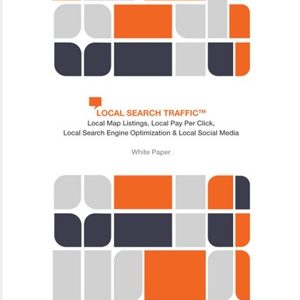
In the past, achieving a high organic search rank was the primary aim for businesses wanting to be easily found online. However, a lot has changed in recent years.
Today’s digital landscape with paid ads, maps, shopping options, reviews, and mobile-first commerce has fundamentally shifted how visibility is achieved, thereby influencing what drives business outcomes.
If your sole focus is on organic rankings, you are quickly falling behind.
Why?
The simple reason is that the digital ecosystem has expanded so much that traditional SEO methods are no longer sufficient.
As mobile use exceeds desktop, local packs and knowledge cards increasingly dominate search results, displacing the traditional blue links. This shift requires a new approach to tracking success in the intelligent search landscape.
Search engines are businesses, and platforms like Google and Bing are evolving to meet the habits of newer consumer generations.
As Baby Boomers age out of the prime consumer market, and Millennials and Generation Z take over, trust in metrics beyond the “organic stack” will reshape the concept of “ranking.”
So, what does it take to rank in intelligent search?
1. Cultivate Rich Location-Specific Knowledge for Map Apps
Map-based queries are on the rise as more consumers search for specific items and products using map applications.
Location-specific searches will continue to increase due to the growing number of mobile users. According to Google, nearly 40% of people perform searches exclusively on their mobile devices daily.
Winning in intelligent search increasingly relies on rich geo-specific information such as operating hours, menus, location-specific photos, service or delivery areas, and more.
2. Generate and Respond to Reviews
Reviews not only impact how search engines rank you, but high ratings could soon become essential for ranking in certain searches.
For example, if a consumer uses “best” in a map query, some services filter results to show only those with 4+ star ratings. Should this prove effective, search engines are likely to solidify and expand this trend.
To appear in future map queries, you must start cultivating reviews and actively managing your digital customer relationships.
3. Connect Your Inventory to Your Digital Presence
Ensuring real-time inventory data is connected to your digital footprint will be crucial for driving foot traffic.
Consumer expectations are evolving to the point where searching for a specific product, like a “40-inch Samsung LED TV,” will yield results not only for electronics stores that carry it but also those that have it in stock.
4. Structure Your Data for Voice
Currently, over 20% of searches are conducted via voice.
As voice search gains popularity across smartphones and voice-first devices like Amazon Echo and Google Home, consumer behavior is rapidly changing.
Google even predicts that by 2020, 50% of queries will be voice-activated. With typically only one spoken result, it’s imperative to structure and markup your content to stay relevant.
5. Integrate Your Digital Knowledge Across the Enterprise
While key business data might have been siloed in the past, the evolving digital landscape demands a rethinking of this practice. Essential digital knowledge should be accessible across all marketing functions.
You need:
– Insights from organic search indicating consumer research patterns.
– Detailed data from paid search related to conversions.
– Feedback and intention signals from social media across various locations.
These data streams must work together, sharing information openly. Additionally, internal business data (products, people, hours, locations, inventory, holiday hours, etc.) needs to be centralized and accessible.
All consumer touchpoints and marketing programs should convey consistent messaging. One voice, one brand.
The Future of Search Rankings: Trust + Rich Experiences
A rich business data footprint increasingly serves as a trust signal for search engines. The more accurate and curated your business information is, the richer the experience search engines can provide to users, leading to higher rankings across various search formats.
New tools to track success in intelligent search across keywords and formats are vital for evaluating where you effectively reach consumers and where you fall short.
Moreover, 5G mobile coverage will enhance these experiences through faster connectivity and data transfer.
To prepare for the next few years, businesses must prioritize managing their data profiles across the web.
Managing business data, including reviews, will soon be essential, not optional.
Consumers demand more, and intelligent services are poised to meet those expectations, forcing businesses to maintain up-to-date data to answer consumer queries promptly.
Engaging with customers is always beneficial for business health.
Bottom Line
Running an online business used to be simpler. It’s not anymore, and it’s only going to get more complex.
Understanding what to prioritize now is crucial for future success. This includes grasping the concept of your “share of intelligent search,” a crucial new component of SEO. Companies that fall behind in this metric will find that new players in their industry can easily capitalize on the opportunity.
Many businesses were slow to adapt to mobile; this upcoming shift will be even more impactful and could redefine business and branding.
Now is the time to take the lead in the intelligent future.



